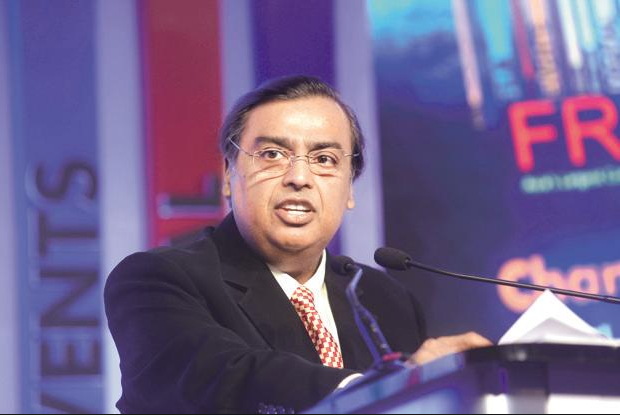A conglomerate run by Asia’s richest man has started a service that aims to compete with Amazon in India.
Mukesh Ambani’s Reliance Industries said it had been inviting people to sign up to its grocery delivery service.
The company is aiming to use its massive mobile phone customer base as a springboard for the business.
The new e-commerce venture could become a major challenger to India’s existing online retail giants.
Two subsidiaries of Mr Ambani’s business empire, Reliance Retail and Reliance Jio, said they had soft-launched the venture, called JioMart.
JioMart says it offers “free and express delivery” for a list of grocery goods, which currently numbers some 50,000 items.
Unlike its rivals, JioMart will connect local stores to customers via an app rather than providing and delivering the goods itself.
India’s online grocery market is in its infancy – currently estimated to be worth around $870m a year, with just 0.15% of the population using such services.
However, analysts predict the sector could see annual sales of around $14.5bn by 2023.
Grocery delivery has long been tipped as the next frontier in the battle for business in India.
A staggering number of internet and smartphone users – plus an unorganised grocery delivery sector – make it a promising market for app-based services.
Some of the world’s largest and best-known technology companies, including Walmart and Amazon, are hoping to cash in too.
This should be a cakewalk for Reliance – it already has hundreds of millions of subscribers to its telecoms network, and operates its own grocery stories as well as retail stores for international brands.
Plus it has the advantage of being an Indian company. Amazon and Walmart have been held back from expanding in this space by government laws aimed at protecting domestic business.
There are Indian competitors operating in the market already – Big Basket and Grofers are the most well-known.
But they’ve had to put the brakes on expanding or tweak their business models to meet the challenges of operating in India, such as poor infrastructure, unreliable mobile networks and strict labour laws.
Reliance has a reputation for disrupting markets it starts businesses in, be it power, oil, retail or telecoms. Its foray into e-commerce is unlikely to be any different.



